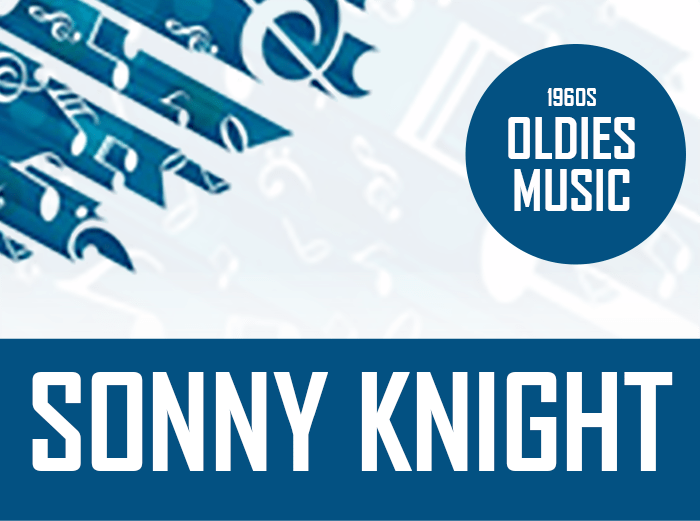Introduction to Sonny Knight
Sonny Knight (born Joseph Coleman Smith 1934-1998) was an African-American R&B and pop singer-songwriter, musician and author, known for mid-50s music era hit “Confidential.” He was born in Maywood, Illinois but was raised in Los Angeles, California. He first recorded for Aladdin, and then for Cal-West, as both Sonny Knight and his real name Joe Smith; both stints were unsuccessful, however. Knight moved to a small label Vita which was based in Pasadena, California. There he cut a single called “Confidential” which was originally a B-side to “Jail Bird.” However, radio disc jockeys flipped the single and played the B-side and the single ultimately broke into the Top 20 at the end of 1956. He followed this up with a couple of minor hits with “If You Want This Love” and “Love Me As Though There Were No Tomorrow”, relegating to being a one-hit wonder. Knight recorded a number of unsuccessful singles on lesser labels before he retired from the music business in the mid-1960s. In 1981 he wrote a novel The Day the Music Died based on his own harsh experiences of racial prejudice that prevailed in the music business in the 1950s. Knight had resided in Maui, Hawaii, where he died in 1998, aged 64.
The life and music of Sonny Knight
Sonny Knight is the late African-American singer, songwriter and author who achieved his biggest hit with “Confidential” in 1956. He was born Joseph Coleman Smith in Maywood, Illinois on May 17, 1934. During the early 1950s he and his family relocated in Los Angeles where he also went on to attend college. He was initially planning to pursuie an academic career but later became attracted to the idea of entering the music business.
Smith started his musical journey writing a song for the rhythm and blues artist Amos Milburn of whom he was a big fan. The said song entitled “Vicious, Vicious Vodka” which was later recorded by Milburn. Some say Knight was pushed by a girlfriend to get a record contract promptly. However, Smith was soon signed to Aladdin imprint, inventing the name Sonny Knight as his alias. On Aladdin, he did a session for a couple of singles, one of which was “But, Officer” (later recorded by Steve Allen). But these records became unsuccessful. After that, he switched to Cal-West under the new pseudonym Joe Smith. He released several singles for the label but none of them were able to turn his career around, so to speak. He also released a couple of tracks for Specialty Records for a while using the Sonny Knight alias but still, no luck.
Knight with the Top 20 hit “Confidential”
Sticking with his first alias “Sonny Knight,” in 1956 he was signed to a small Pasadena, California-based record label Vita. Knight released the “Confidential” as his first single for Vita. Produced by Robert “Bumps” Blackwell and written by songwriter Dorinda Morgan, the song was played in rotation at local radio stations. The initial success earned the single a license from the big-time Dot label for a larger distribution. “Confidential” made to the Top 20 of the Billboard pop chart at #17, and the Billboard R&B singles chart at #8.
Knight continued releasing records for Dot while working as a session pianist in Los Angeles. After his time with Dot, he recorded for numerous smaller labels such as Starla, Original Sound, Fifo, World Pacific, Swingin’, Eastman and many more. On Aura Records, he once again visited the pop chart in 1964 with “If You Want This Love,” and “Love Me As Though There Were No Tomorrow,” peaking at #71 and #100 respectively. His work also received good reviews from the critics, including rock critic Greil Marcus.
Sonny Knight’s later years
When Knight retired in the mid 1960’s, Knight relocated to Hawaii where he resided and continued performing at small bars.
Being credited as Joseph C. Smith, he launched his novel entitled The Day the Music Died in 1981. Published by Grove Press, the book was a thinly-veiled account about his music career and the racial prejudice in the American music industry back in the 1950’s.
After suffering a stroke two years earlier, the 64-year old Knight died in Maui, Hawaii in 1998.

